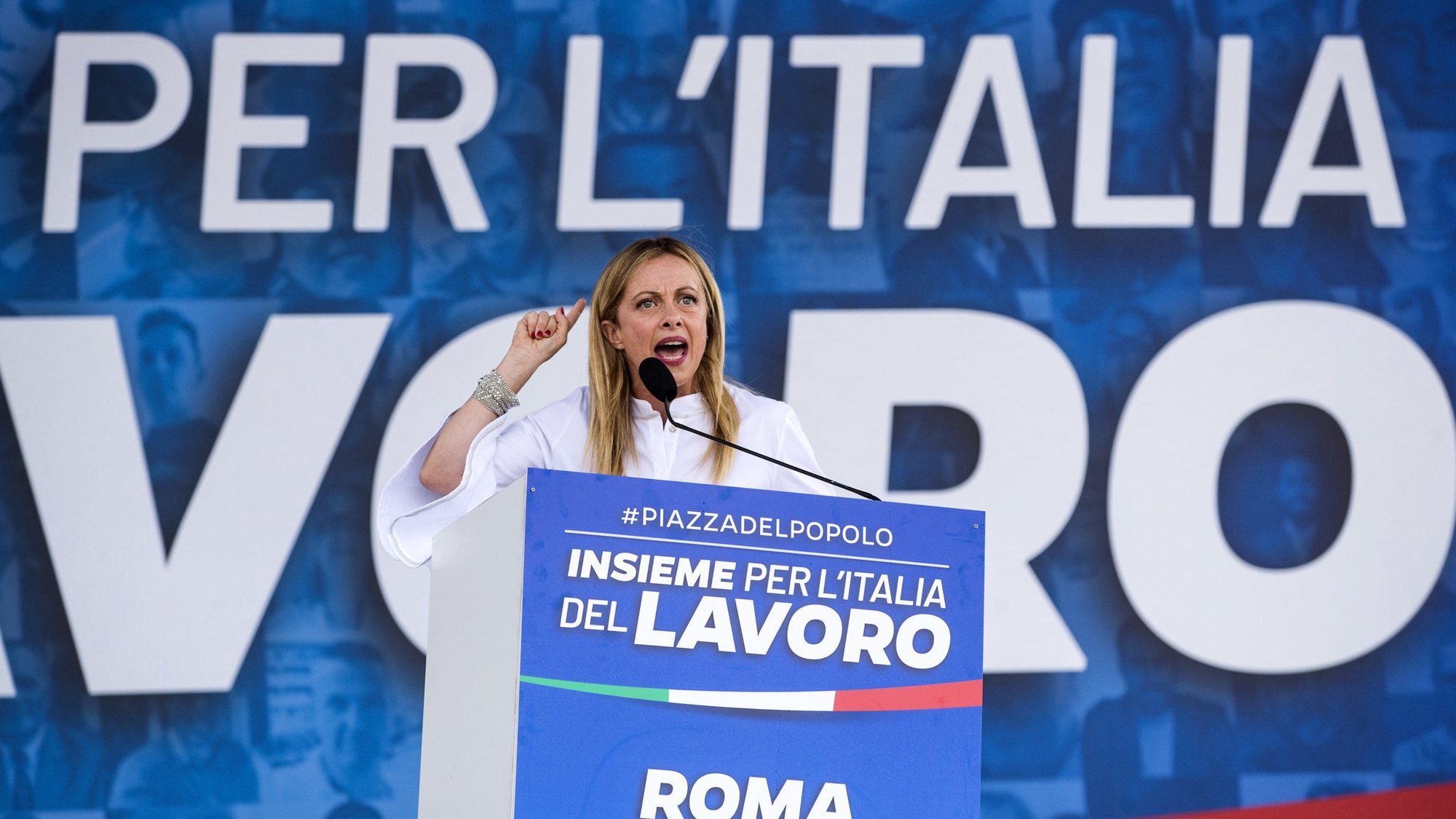The League, which is part of the far-right coalition favored to win the legislative elections on September 25, continues to be “persecuted” by suspicions of Russian financing, but journalists heard by Lusa consider the appearance of incriminating evidence unlikely.
The Italian election campaign, in which opposition to European sanctions on Russia divides the far-right coalition and the Democratic Party (left) and allies, has been shaken in recent days by revelations from anonymous US intelligence sources, quoted by the press, that Russia since 2014 has invested $300 million in financing politicians in more than 20 countries in Europe, Africa and South Asia “to try to influence local politics.”
With long-standing suspicions about the League, outgoing Prime Minister Mario Draghi himself said on Friday that he had raised the question of whether or not there was information about Italians being involved with US Secretary of State Antony Blinken, who said in a phone call. they focus so much that “Italy is not on this list”
According to “La Repubblica”, the main centre-left daily in Italy, doubts persist “because there are two files, one of which has been classified and which Blinken has not mentioned”. “As long as there are no documents and evidence, it seems to me a good message to be used against anyone a few days before the elections and, above all, it is waved by a political quadrant contrary to the one that theoretically should win,” said the deputy. the director of the center-right newspaper “Il Giornale”, Francesco del Vigo, told Lusa.
For Del Vigo, this case “contaminates the electoral campaign because it is detrimental to all politics to think that there are parties that receive money from what is now an enemy power.”
Copasir, the parliamentary surveillance body of the secret services, met on Friday to discuss the new revelations and, after the meeting, the President of the Council, Mario Draghi, left a message of “confidence”: “Italian democracy is strong, they are not allowed to be defeated by external enemies, by hired puppets”.
Kurt Volker, former US ambassador to NATO, told La Repubblica that “Russian sympathies for the League and [Silvio] Berlusconi [do partido Força Itália] were known, but now the constant refrain, even if there is no direct personal proof, is that the Brothers of Italy [de Giorgia Meloni, que integra a coligação] They also received help.”
These words angered the League, Force Italy and Brothers of Italy, who threatened legal action. Berlusconi’s formation also added that “the only Russian financing that has reached the Italian parties with certainty is that received decades ago by the Italian Communist Party.”
After the Copasir meeting and Draghi’s statements, Matteo Salvini, the leader of the League even demanded an apology, because for “years some leftist and leftist press have been chasing rubles, dollars, francs (…) influences, strange relationships, economic interests”, with “zero” registered cases.
But the League has recently been investigated for its relationship with the Kremlin. In 2019, the Milan Public Ministry opened an investigation involving Gianluca Savoini, former spokesman for Matteo Salvini, who allegedly negotiated in a Moscow hotel to obtain funds through the sale of oil.
According to the accusation, the funds were intended for the League, but Salvini assured that his former spokesman was not speaking on behalf of the party, but was doing business on his own. According to Paolo Biondani, a journalist who signed the investigations on Savoini for the weekly Espresso, “it is true that the regime of [Vladimir] Putin and the oligarchs have a huge amount of money deposited in accounts abroad, and it would not be a problem for them to finance parties abroad.
According to Biondani, the “vague” news coming now from the United States could be “a warning to the parties that will win the elections, so that they can clearly decide which side to take.”
Biondani adds that something important is to verify the sources of these documents. “If the source is the Fincen documents [agência norte-americana que vigia transações mundiais em dólares] and they have bank transfers, that means that the news is very significant, that the beneficiaries already have it. If, on the other hand, the department relies on CIA sources, perhaps secret informants, I doubt that evidence will emerge.
A few weeks ago, the Democratic Party accused the League of carrying out “Russian propaganda”, when Salvini asked during an important Italian economic forum that “the sanctions against Russia be reconsidered, because they also harm Italy”.
According to Del Vigo, this request “is in no way a way of doing a favor to the Russians”, but to the Italian economy. “I would not make a connection between these positions of Salvini and the news that comes from the United States. The sanctions are harming what was once Salvini’s constituency, that is, the businessmen of the Northeast. Thinking about the sanctions was a way for the leader of the League to reconnect with that electorate that, according to the latest polls, was heading for Meloni”, Del Vigo added.
The sanctions on Russia put the right and the left at opposite poles, with Draghi himself criticizing Salvini’s views on the matter on Friday.
“The government does not agree with this,” Draghi said in response to a question about the effectiveness of sanctions on Russia. “Sanctions work, Russian propaganda has tried to prove the opposite, but it is not true, otherwise we would not be able to understand Putin’s recent behavior. We must continue on this front.”
The outgoing Foreign Minister, Luigi Di Maio, called for the opening of a parliamentary commission of inquiry into relations between the parties and Russia – after he himself went so far as to declare that he never received funds from Moscow while leading the 5 Star Movement as well in the race – until this month’s elections.
Source: Observadora
